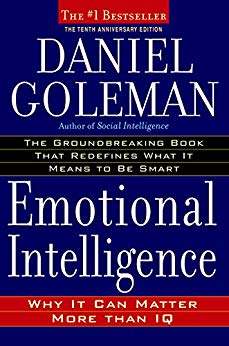

This article is an excerpt from the Shortform summary of "Emotional Intelligence" by Daniel Goleman. Shortform has the world's best summaries of books you should be reading.
Like this article? Sign up for a free trial here .
What is the mythical flow state? How do you achieve flow? How do you get into flow, and experience it?
The most successful people in their fields–masters of a certain subject or ability–often describe their ideal working mentality as a “flow” state. Flow state is a product of motivation, discipline, and practice. They describe this state as one where you lose your sense of self–you might as well not exist, or you go into full autopilot–and your ability to do something seems to come from outside your mind or body. One composer described it as his hand working without him–that the music just came pouring out by itself.
This flow state represents the pinnacle of emotional control in the service of doing something–people who get into a flow state are not just controlling and directing their emotions, but their emotions become positive sources of energy that align with the goal they’re trying to achieve.
- Like a composer channeling her emotions into a piece of music where what she’s feeling seems to translate immediately into music and build on itself, and the more she writes, the easier it comes, all her skills working together in perfect harmony (Shortform note: pun intended).
In this flow state, our awareness merges with our actions–there’s little to no gap between what we’re conscious of and what we’re doing. Even reflecting on what we’re doing can take us out of a flow state–it halts the relationship between thinking and doing for a moment of outside reflection like “This is going well!”
It’s the opposite of anxiety. Anxiety is the tendency to step out of the current moment and look down on it from above with worry. Flow state is the ability to be totally in a moment and an action, without any removed opinions, good or bad.
How to Get Into a Flow State
First, it requires long-term discipline. To get into a flow state, you have to have mastered the basics of what you’re trying to do.
Next, it requires high levels of calm and focus. Flow is, in essence, a highly concentrated state, relaxed yet intensely focused.
Lastly, once the first two steps have been achieved, a flow state usually requires the task at hand to be just outside your abilities. In other words, once you’ve mastered something, if you only perform it at that level, you’ll get bored. Flow occurs when you don’t have to think about the basics, but the task at hand is a challenge for you, so you are constantly engaged in performing the skills you’ve mastered to achieve a new level of success.
- It can’t be too much of a challenge though, or you’ll probably get anxious–if the task is too far outside your ability, you’ll find yourself reflecting on what’s going on in a negative way instead of keeping up with the challenge as it occurs.
The Feeling of Flow
When people get into this state, they usually describe the emotions they’re feeling as spontaneous rapture. There’s actually little emotional content other than a feeling of ecstasy that serves as motivation. They lose track of time or their surroundings.
Watching someone in a state of flow makes the difficult thing look easy: the performer looks like an effortless natural, despite the task being something of a challenge for them.
- Olympic athletes are a great example of this: sprinters look like they’re barely expending effort to get ahead of one another, despite the fact that they’re challenging their physical abilities at the highest level. This is real flow state.
And, in one sense, it is easy: the reason why people feel like the flow state comes from outside themselves is that their brains are expending minimal mental energy. This is why mastering the techniques involved is crucial, as well as a sense of calm: well-practiced skills require less effort than freshly learned ones, and agitation or anxiety tire the brain out and decrease your ability to be concise in your efforts.
Flow State in Academics
There’s a case for education embracing the idea of flow: people are more likely to master something that they enjoy doing, and since people enjoy doing different things, a one-size-fits-all model of education might not bring out the best in students. When kids get bored in class or overwhelmed by anxiety if the pressure is too high, it becomes harder for them to learn. Motivating kids from the inside out–letting them find the things that they care about and enjoy engaging in, and then helping them master their abilities to do those things–might result in a better educated student body, even if their education has a more narrow focus.
But teachers can use internal motivation and the idea of flow state to improve student performance in any subject: schools that embrace this model of education identify a student’s individual profile of natural competencies, then pass those profiles on to teachers, who can use them to shift how a certain topic is presented.
- For example, though math is numbers, if a child had a particular aptitude for music, math lessons could be taught through the vehicle of music, since the two are closely connected.
The ultimate goal is to introduce every child to the flow state–once they know what this feels like, it will hopefully motivate and encourage them to take on challenges in other areas, with the hope of achieving the same results in a different subject. Studies reinforce this idea.
———End of Preview———

Like what you just read? Read the rest of the world's best summary of Daniel Coleman's "Emotional Intelligence: Why It Can Matter More than IQ" at Shortform . Learn the book's critical concepts in 20 minutes or less .
Here's what you'll find in our full Emotional Intelligence summary :
- What are emotions? Why do we have them?
- What is emotional intelligence? Why is it important?
- How do you manage your own emotions? Anger, anxiety, and sadness?
- How can you approach your relationships with more emotional intelligence?
- How can you teach your children emotional intelligence?
- How can emotional intelligence boost your career?






